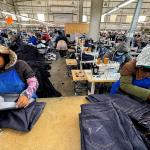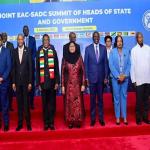Margot van der Velden said nearly 31 million people in Nigeria are facing acute food insecurity and need life-saving food — a number “equivalent to the entire population of Texas going hungry.”
But the regional director of the World Food Program said that due to severe funding cuts starting in August, “we will face the heartbreaking reality of having to suspend humanitarian aid for the populations in areas devastated by conflict.”
That means over 1.3 million people in Nigeria will lose access to food and nutritional support, 150 nutrition clinics in Borno state in the northeast where Islamic militants are active may close and 300,000 children will be at risk of severe malnutrition, and 700,000 displaced people “will be left with no means of survival,” she said.
For years, the U.S. Agency for International Development had been the backbone of the humanitarian response in northeastern Nigeria, helping non-governmental organizations provide food, shelter and health care to millions of people.
The Trump administration has slashed foreign assistance and dismantled USAID, accusing the agency of waste and fraud and supporting a liberal agenda. Other Western donors also have slashed international aid spending.
Van der Velden said WFP urgently needs $130 million to sustain its operations in Nigeria.
But she stressed that the crisis is not just in Nigeria but across west and central Africa, where WFP is also facing critical funding shortfalls that are forcing the Rome-based agency to reduce or suspend operations in some of Africa's “most fragile” countries.
“WFP’s aid has dropped by 60%, now reaching only 5 million people, with Mali and Niger suffering cuts of over 80% in emergency support,” van der Velden said. “In countries such as Mali, Mauritania, Niger, Cameroon and the Central African Republic, we are seeing the same pattern: rising needs, shrinking resources and growing risks.”









